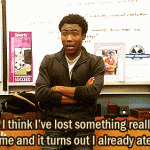Ramblings – Planned Obsolescence

Yesterday, my iPad broke. There was no warning, no telltale whirring, grinding or excessive dampness that accompanied it’s sudden demise. I was sitting, quite happily watching a youtube video when the screen went black. The backlight had decided two years was quite long enough to work and suddenly stopped; by this morning the screen was completely blank. My iPad was not coming back.
I have been aware of the notion of “planned obsolescence” for some time. The basic principal being that if something lasts forever they will never want, nor need to replace it and when you’re talking about technology that cannot end well. For anyone. Imagine if the original iPhone had been it, if suddenly in 2007 everyone who bought a brand new iPhone suddenly decided that it was their phone for life and they would never ever buy another smart phone again.
Apple would be out of business.
The fact that they aren’t is in reality the result of two things: firstly, most people do not work that way; secondly, even if they did very few of their phones are likely to function without major (and expensive) repairs such as replacement batteries.
The first issue is self explanatory but the second is why planned obsolescence has become a major business idea in recent years. Business is supply and demand; electronic goods with a limited lifespan mean that there is always some demand. Whether you are an Android or an iSlave eventually some electronic good you own will just stop working. Forever. As mechanical a death as you would see from Bela Lugosi or Keanu Reeves. Bad for you, but ultimately good for business.
Is it bad for you though? I mean really think about it – not only would apple be out of business if no-one ever bought another phone again but they wouldn’t have resurrected the tablet market (and actually succeeded) iPads, Samsung Galaxys, The Nexus hell even Windows Surface would not be being lauded as the future of computing. Planned obsolescence allows companies to innovate much faster, it means that two years from now all of the current smart phone and tablet companies can count on people staring at their two year old touchscreens, waiting for something to finally break, knowing in relative confidence that the newest model is out, with new features and even less buttons. It drives technology forwards as easily as it bleeds our wallets dry.
I don’t really know what to think about it; I can genuinely see both sides of the argument. What I do know is that my new iPad has a retina display and talks back to me when I ask it something.
I’m such a sucker…








